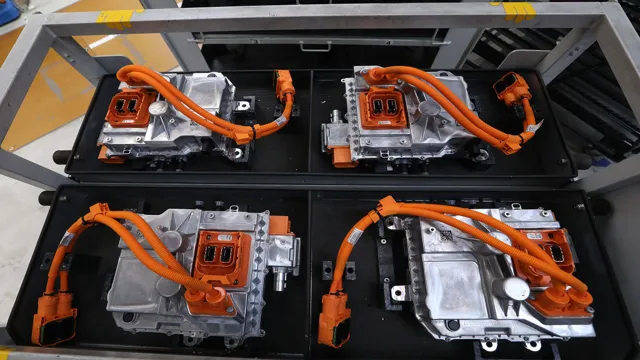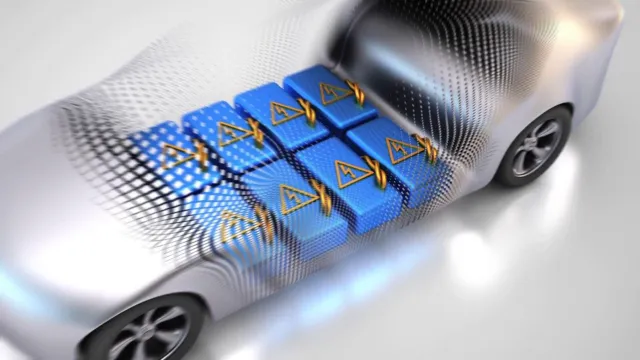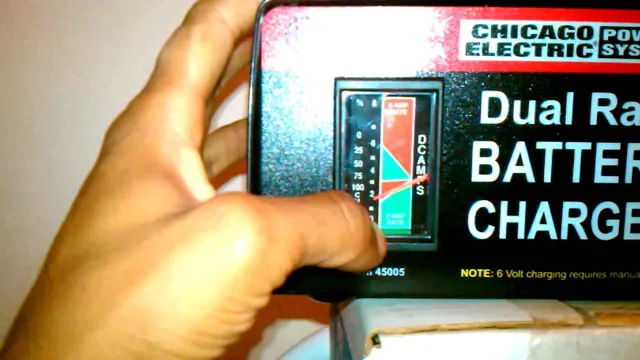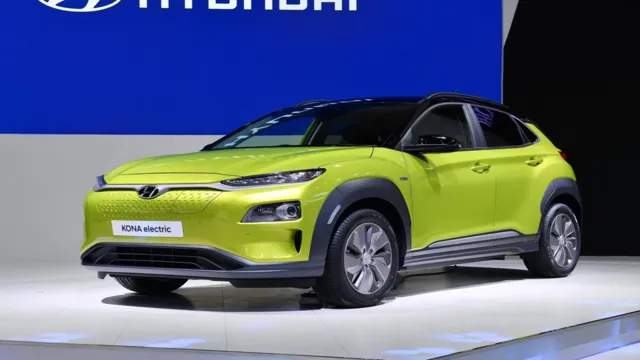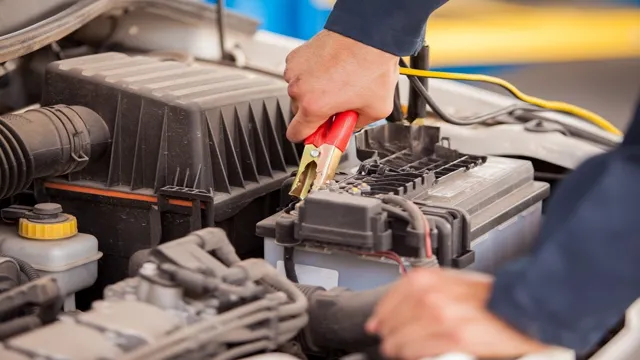10 Ways Electric Car Batteries are Transforming the Environment
Electric vehicles have become increasingly popular in recent years due to their eco-friendly nature and lower carbon footprint compared to their traditional gas-guzzling counterparts. However, one aspect of electric cars that often raises concern is the impact of their batteries on the environment. Electric car batteries are essential to the operation of these vehicles, but how do they affect the environment? In this blog, we’ll explore the environmental implications of electric car batteries and how they compare to traditional car batteries.
We’ll look at their production, lifespan, and disposal to fully understand the impact they have on our planet. Join us as we dive into this complex yet crucial topic.
Introduction
Electric car batteries are becoming increasingly popular due to their environmental benefits. These batteries are designed to emit fewer pollutants and reduce the carbon footprint of cars that run on electricity. However, there are some concerns regarding the impact of these batteries on the environment.
They contain materials such as nickel, manganese, and cobalt, which can be hazardous if not disposed of properly. In addition, the production of these batteries requires a large amount of energy and resources, leading to a high carbon footprint. Therefore, it is important to ensure that electric car batteries are manufactured and disposed of responsibly to minimize any negative impact on the environment.
By adopting sustainable practices and promoting recycling, it is possible to enjoy the benefits of electric cars while reducing their overall impact on our planet.
The Environmental Impact of Traditional Car Batteries
When it comes to traditional car batteries, the environmental impact can be quite concerning. These batteries contain materials such as lead, mercury, and cadmium, which can have harmful effects on both the environment and human health. Additionally, the manufacturing process for these batteries involves the use of energy and resources that can further contribute to environmental degradation.
As we become more aware of the impact of our actions on the environment, it is important to consider alternatives to traditional car batteries that are more sustainable and less harmful. By doing so, we can reduce our carbon footprint and ensure a healthier planet for generations to come.

Benefits of Electric Car Batteries for the Environment
Electric car batteries are paving the way for a cleaner and greener future for the environment. With increasing concerns about air pollution and the depletion of non-renewable resources, electric vehicles are becoming more popular as they offer a sustainable mode of transportation. The main advantage of electric car batteries is that they produce zero emissions, meaning they do not release harmful pollutants into the environment.
This is especially important in cities where air pollution is a major problem. Apart from zero emissions, electric car batteries are also more efficient than traditional gas-powered cars, as they convert a higher percentage of their energy into motion. This not only reduces carbon emissions, but also saves us money in the long run.
With electric car batteries, we can reduce our carbon footprint, preserve our environment, and create a better future for generations to come.
Environmental Concerns with Electric Car Batteries
When it comes to electric car batteries, there are some environmental concerns that are worthy of consideration. One of the primary concerns is the production of the batteries themselves. The production process is known to consume a significant amount of energy and leads to carbon emissions.
In addition, the disposal of lithium-ion batteries can also cause harm to the environment and the people who handle them. If not disposed of properly, these batteries can release toxic chemicals into the soil and water, leading to damage to the natural ecosystem. Despite these concerns, it is important to note that electric cars are still a more sustainable and eco-friendly alternative to traditional gasoline vehicles.
The industry is also working towards the development of more environmentally-friendly battery technology to address these concerns.
The Extraction of Rare Earth Minerals
Electric car batteries rely on rare earth minerals, which are extracted from the earth’s crust. However, the extraction process can have serious environmental concerns. The process involves the mining and processing of rocks that contain rare earth minerals, which can result in soil and water pollution, deforestation, and air pollution.
The chemicals used to extract the minerals can cause respiratory problems for workers and nearby residents. Additionally, the process of extracting rare earth minerals can result in the destruction of natural habitats and displacement of wildlife. While electric cars are considered a greener alternative to traditional gasoline-powered vehicles, it is crucial to recognize the environmental impact of their production and not overlook the negative effects that the extraction of their essential components can have on the planet.
It is important for researchers and industry experts to find alternative ways of sourcing these minerals or to develop greener extraction methods.
Battery Recycling and Waste Management
Electric car batteries are designed to last for several years and are a crucial component in making electric vehicles more environmentally friendly. However, these batteries pose a significant risk to the environment if not disposed of properly. Improper disposal of electric car batteries can lead to potential toxic waste and environmental pollution.
Therefore, recycling and waste management of these batteries is critical to ensure their components are reused safely. Fortunately, many electric car manufacturers are now taking responsibility and developing battery recycling programs. These programs aim to reduce the number of batteries that end up in landfills, which poses a threat to the environment.
Through recycling and responsible disposal, we can not only reduce the environmental impact of electric car battery production but also ensure the sustainability of our resources.
Lifecycle Assessment of Electric Car Batteries
The environmental concerns associated with electric car batteries have become increasingly prevalent, especially when it comes to their lifecycle assessment. One of the primary issues with electric car batteries is their end-of-life disposal. Most batteries end up in landfills, where they can cause environmental damage and leach toxic chemicals into soil and water sources.
Furthermore, the production process of these batteries can also contribute significant greenhouse gas emissions. However, the good news is that many automakers are working to reduce the environmental impact of their batteries by implementing recycling programs and creating partnerships to repurpose used batteries for secondary applications. These efforts are essential in ensuring a more sustainable future for electric vehicles and the planet as a whole.
Innovations in Electric Car Battery Technology
Electric car batteries have come a long way since they were first introduced to the world. Companies are constantly developing new technologies to make them more efficient and environmentally friendly. One such innovation is the use of solid-state batteries.
Unlike traditional lithium-ion batteries, solid-state batteries use a solid electrolyte instead of a liquid one. This makes them safer and less susceptible to leaking, while also reducing the risk of fire. Additionally, the use of solid-state batteries may lead to longer driving ranges and faster charging times for electric cars.
As the world becomes more conscious about the harmful effects of vehicle emissions on the environment, the development of cleaner and more efficient electric car batteries is crucial. Encouragingly, many governments around the world are incentivizing people to switch to electric cars, paving the way for a greener future.
Solid-State Batteries
Solid-State Batteries As electric cars become an increasingly popular mode of transportation, the demand for more advanced battery technology continues to rise. One breakthrough innovation in this field is the development of solid-state batteries. Unlike traditional lithium-ion batteries, solid-state batteries use a solid electrolyte instead of a liquid one.
This results in several advantages, including higher energy density, faster charging times, and enhanced safety. Additionally, solid-state batteries are more durable and have a longer lifespan than their liquid counterparts. While still in the early stages of development, solid-state batteries show great promise for the future of electric car battery technology.
With ongoing research and advancements in this area, it’s likely that we’ll see more electric cars equipped with solid-state batteries in the coming years.
Second-Life Batteries
Innovations in electric car battery technology have led to the emergence of a new trend known as “second-life batteries.” As the name suggests, these batteries have already been used in electric vehicles but are given a second life by repurposing them for other purposes. These batteries still have a significant amount of energy-storage capacity left, and so they are often used for stationary energy storage, such as in households, businesses, or even on a larger scale like in wind and solar farms.
This innovative approach helps to reduce waste and cut down on the cost of producing new batteries. It’s a win-win situation that not only benefits the environment but also the consumers, as second-life batteries are more affordable than fresh ones. With advancements in battery technology, we can expect more creative and innovative applications of second-life batteries in the near future.
Conclusion
In conclusion, electric car batteries have certainly been a game-changer in the fight against climate change. By reducing emissions and offering a more sustainable form of transportation, they are helping to break free from the environmental damage caused by traditional fossil fuel-powered vehicles. However, we must also be mindful of the impact that the production and disposal of these batteries can have on the environment.
Just like anything else, maintaining an eco-friendly mindset is crucial in ensuring that our advancements in technology continue to benefit us and the planet we call home. So, whether you’re driving a sleek Tesla or a humble Nissan Leaf, let’s work together to keep the world around us electrically charged and environmentally sound!”
FAQs
Why are electric car batteries considered better for the environment?
Electric car batteries are considered better for the environment because they produce zero emissions, unlike traditional gasoline-powered cars, which release harmful pollutants into the air.
What materials are electric car batteries made of?
Electric car batteries are commonly made of lithium-ion, which is a rechargeable battery chemistry that is both efficient and lightweight.
Can electric car batteries be recycled?
Yes, electric car batteries can and should be recycled to reduce waste and environmental impact. The materials in the batteries can be repurposed for other uses, such as solar panels.
How long do electric car batteries typically last?
The lifespan of electric car batteries varies, but most manufacturers offer a warranty of at least eight years or a certain number of miles. When properly maintained, the battery can last up to 15 years.

